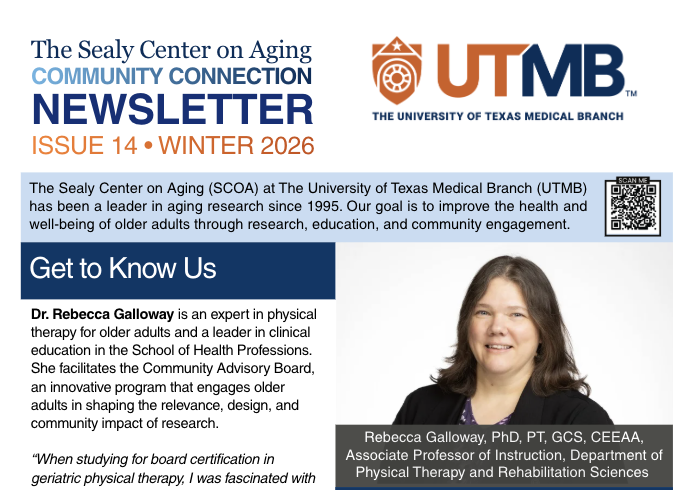Welcome
The Sealy Center on Aging (SCOA) is an independent, multidisciplinary component of The University of Texas Medical Branch (UTMB) dedicated to improving the health and well-being of older adults through research, education, clinical care, and community engagement. Supported by endowment funds from the Sealy and Smith Foundation and $25M+ in active federal funding, SCOA supports research by more than 100 affiliated Fellows and Senior Fellows from all five UTMB schools.
How Can We Help?

Students & Trainees

Researchers & Staff

Older Adults & Community
Associated Research Programs:
Contact Us
Sealy Center on Aging (SCOA)
301 University Blvd.
Galveston, TX 77555-0177
Directions and Maps
Phone: (409) 747-0008
Email: aging.research@utmb.edu
The WEARHouse: Wearable Sensor Resource for Researchers
.jpg?sfvrsn=1d54054_0)









